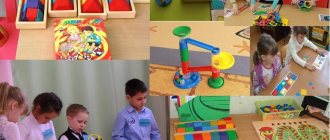How to develop speech and learn to speak beautifully
Reading books
Reading books will help you learn to express your thoughts correctly. They will replenish their vocabulary with new, and sometimes even outlandish words.
Read more: Benefits of reading books
Use dictionaries
They will help you see where to put the emphasis correctly and tell you the meaning of unknown words.
In order for your public speaking to be successful, you need to work out in advance what you want to convey to the audience. A little plan will help with this. You can write it down on paper by adding a few keywords. There is no need to read the entire text from the sheet, this will make the speech dry, lifeless and unemotional. It will be difficult for listeners to perceive.
Rich vocabulary
Visualization of desires - what is this method, how to properly materialize thoughts
A rich vocabulary helps you express your thoughts beautifully and succeed in life. Rich speech speaks of a person’s culture and good education.
The importance of a rich vocabulary is great, since with its help you can express yourself freely, conduct business negotiations and quickly move towards your goals.
Knowing a lot of words and being able to speak beautifully are not the same thing. The vocabulary needs to be replenished with a broad outlook, knowledge, beautiful speech and expressiveness.
Exercises to help develop speech
They will help people at any age, no matter if they are a first-grader or a man in adulthood.
- Find a speaker whose speech you like . You should listen to and analyze several of his speeches. So you will notice what techniques he uses. The most suitable ones should be taken into account. Just be sure to test them when communicating with friends. This way you will see whether they work in your case, and correct your speech if necessary.
- Communication with yourself. When no one is around, try to prove something to yourself. Argue a little, putting forward different theories. This will help you quickly find the necessary words and thoughts when communicating with others.
- Make up short stories . Take 5 different words as a basis. Then make up a short story with them. This exercise develops logic and trains imagination.
To make your voice stronger
These exercises will give your voice strength and energy. You will begin to sound louder and more powerful.
Sounds “i”, “e”, “a”, “o”, “u”
Exhale, then take a deep breath and on the second exhale say a long “i” sound. Do this freely as long as you have enough air. Do not force the air out of your lungs. Pronounce the remaining sounds in the same way: “e”, “a”, “o”, “u”. Perform three repetitions.
The sequence of these sounds is not random: they are distributed in height. Accordingly, “i” is the highest (activates the upper area of the head), “u” is the lowest (activates the lower abdomen). If you want to make your voice lower and deeper, practice the “u” sound more often.
Tarzan Exercise
Complete the previous task, only now beat yourself in the chest with your fists, like Tarzan. The exercise is designed to fill your voice with energy and clear your bronchi, so if you feel like clearing your throat, don’t stop yourself.
Moo
This exercise activates the chest and abdomen. Exhale and inhale. On the next exhalation, begin to pronounce the sound “m” with your mouth closed. Perform three approaches: first moo quietly, then at medium volume and finally at very loud volume.
Growl
Raise your relaxed tongue to the palate and begin to pronounce the sound “r”. It should turn out “r-r-r”, like a tractor. Repeat the exercise three times, then expressively read about a dozen words that contain the sound “r”. Be sure to accompany the reading with a rolling “r”.
A simple growl will not only give your voice strength and energy, but will also improve your diction.
What to consider when communicating with others
Record your casual conversations with friends on a voice recorder. This trick will show you the mistakes you are making. More often it is:
- Parasite words . Frequently used words for connecting speech, such as “in short,” “as if,” “probably,” indicating indecision, reduce the significance of what is said. Try to remove slang and jargon from your speech. Do not shorten the words, pronounce them in full. And most importantly, remove obscene language from your speech.
- Fast speech . Speech without pauses prevents listeners from concentrating on what is being said. Many phrases come out crumpled. If among the listeners there are people with hearing problems, then half of them will not hear at all.
- Mangling words and incorrect stress. Pay attention to how others pronounce words. If you put an accent somewhere else, check yourself with a dictionary.
Inappropriate facial expressions and gestures will also distract people’s attention from speech. They should emphasize what they are saying, so there is no need to wave your arms too much or smile excessively. Movements should be smooth and the face should express calmness. Practice in front of a mirror. Pay attention to your posture. The back should be straight and the shoulders should be turned. This will convey confidence, which will attract listeners to you.
Read further: What can gestures tell us? 75 Signs of Body Language
Everyday style of speech
There is nothing complicated about how to express yourself and speak correctly in everyday life.
The most important obstacles in constructing a beautiful speech:
- Parasite words. These include: “well”, “this”, “uh”, “like” and others. They do not decorate speech at all and have no meaning.
- Curse words. It is a deep misconception that swearing brings people together in a company. In fact, a person with literate speech without using swear words will make a positive impression in any circle of people.
The company always pays attention to a person with competent speech
- Slang. Currently, it seems that slang helps to keep up with the times. However, not everyone is familiar with new buzzwords and may simply not understand their opponent. If there is no desire to make communication more difficult, then slang should be avoided.
Additional Information. You should always pay attention to how the conversation is structured. Some people just open their mouth and say the first word, and the interlocutor begins to involuntarily wince. The issue may concern not so much speech as voice timbre. Therefore, you should also work on the sound of your voice.
How to develop diction and clarity of speech
To develop diction and speech, you need to enroll in rhetoric courses. On the Internet you can simply find a huge amount of advice from psychologists that can help you establish contact with others and set your listeners in the right mood. You can also find suitable books. All this, plus practice, will help improve public speaking.
Exercises to develop diction
To get good diction you need to practice. These exercises will help you with this:
- Breath. Take a deep breath into your lungs and chant the vowels as much as you can. At first, breathing will only last a little, but after a while the duration of singing can reach 20 seconds. To adjust the pitch of your voice, breathe as if you were trying to blow out a candle.
- Tongue Twisters. They combine different sounds, so they will help you not mumble, but pronounce words clearly. To enhance the effect, you can put several nuts in your mouth.
- Articulation exercises. With your mouth closed and then with your mouth open, touch the tip of your tongue to your left and right cheek. Then open your mouth wide and move your lower jaw back and forth. Smile widely and open your mouth, run your tongue over your teeth, as if counting them.
- For more exercises to improve diction and clarity of speech, see here.
You should practice the exercises for 10-15 minutes a day. You need to move on to the next task only after the first one has been completed correctly.
How to develop your speech and vocabulary
- Every person has words in their vocabulary that they use every day. He knows others, but rarely uses them. Therefore, every morning, take three words from the dictionary and use them throughout the day . After six months, your speech will be unrecognizable.
- When reading a newspaper or an article from the Internet, stop and retell what you read close to the text . Then re-read the text again and pay attention to the unused words. Repeat them several times to remember them. Also, tell your friends in detail about the movie you recently saw, with emotions. If you complete it in 20 minutes or more, and there are no special problems with the retelling, then you have achieved success. If not, then keep working.
- Always try to read out loud. Looking through the text with our eyes, we may not remember new words, but when they are pronounced, they remain in memory for a long time.
- Memorize poems or passages from your favorite books. This way you will remember new words that you will involuntarily begin to use in everyday life.
- Also start writing . Let it be short stories about hedgehogs or about a summer trip, or even simpler, correspond in detail with friends on social networks. When writing, try to use words you rarely use. Write colloquially; you don’t need to try to impress everyone with complex phrases. Write immediately, as you go along, without overthinking your answer. This way you will write your own thoughts, and not ready-made phrases.
Read further: Oratory for beginners: exercises and rules
Article rating
Text to improve diction. Text for diction
I found this “method”: Read this text out loud every day and after 2 weeks you will be surprised at the possibilities of your speech. To begin with, you should speak the text slowly. When you can pronounce the phrase slowly, clearly and clearly, emphasizing each sound, silently work on articulation. After practicing your lip movements, pronounce the text in a whisper. Remember: to learn to speak quickly, you need to learn to speak slowly!
On Thursday the fourth at four and a quarter o'clock the Ligurian traffic controller was regulating in Liguria, but thirty-three ships
maneuvered, maneuvered, but never managed, and then the protocol about the protocol was recorded as a protocol, as the interviewed Ligurian traffic controller eloquently, but did not report clearly, but did not complete the report, and then reported in such a way about the wet weather so that the incident did not become a candidate for a judicial precedent , the Ligurian traffic controller acclimatized in unconstitutional Constantinople, where the tufted laughter laughed and shouted to the Turk, who was blackly stoned with a pipe: don’t smoke, Turk, pipe, you better buy a pile of spades, you better buy a pile of spades, otherwise a bombardier from Brandenburg will come and bombard you with bombs for that someone with a black snout dug up half his yard with his snout, dug and dug; but in fact, the Turk was not in the business, and Klara was sneaking to the stall at that time, while Karl was stealing corals from Klara, for which Klara stole the clarinet from Karl, and then in the yard of the tar widow Varvara, these two thieves stole firewood; but it’s a sin - not laughter - not to put it in a nut: about Clara and Karl in the darkness, all the crayfish were making noise in a fight, so the thieves had no time for the bombardier, and no time for the tar widow, and no time for the tar children; but the angry widow put the firewood in the barn: once firewood, two firewood, three firewood - all the firewood could not fit, and two woodcutters, two woodcutters, for the emotional Varvara, expelled the wood across the width of the yard back to the wood yard, where the heron withered, the heron withered, the heron died ; the heron's chick clung tenaciously to the chain; well done against the sheep, against the well done the sheep itself, to which Senya carries hay in a sleigh, then carries Senka Sonya and Sanka on a sled: the sled hops, Senka in the side, Sonya in the forehead, everything in the snowdrift, and Sashka only knocks the bumps off with his hat, then Sasha went along the highway, Sasha found Sasha on the highway; Sonya, Sashka’s friend, was walking along the highway and sucking on a dryer, and besides, Sonya the turntable also had three cheesecakes in her mouth, exactly like a honey cake, but she had no time for a honey cake, Sonya, and with the cheesecakes in the sexton’s mouth, she over-stuffed, over-stuffed: buzzing, like a ground beetle, buzzing, Yes, it’s spinning: Frol had Frol lie to Lavra, he will go to Lavra to Frol Lavra will lie that the sergeant is with the sergeant, the captain is with the captain, that the snake has a snake, and the hedgehog has a hedgehog, and his high-ranking guest took away his cane, and soon again five the guys ate five honey mushrooms and half a quarter of a quadruple of lentils without a wormhole, and one thousand six hundred and sixty-six pies with cottage cheese from whey from under yogurt, about all of which the bells were ringing around the bell, so much so that even Konstantin of Salzburg, a hopeless man from under an armored personnel carrier, stated: Just as you can’t ring all the bells, you can’t beat them again, so you can’t speed up all the tongue twisters, you can’t speed them up; but trying is not torture. At the end of reading this text, my tongue could barely move. And also, I wonder if these are coincidences about the Turks and the Ligurians, or what? I couldn’t find the author or date of compilation of the text. Does this method actually work? Along with someone else, I need to develop my diction a little, otherwise I’ll soon forget how to speak here in the village.











